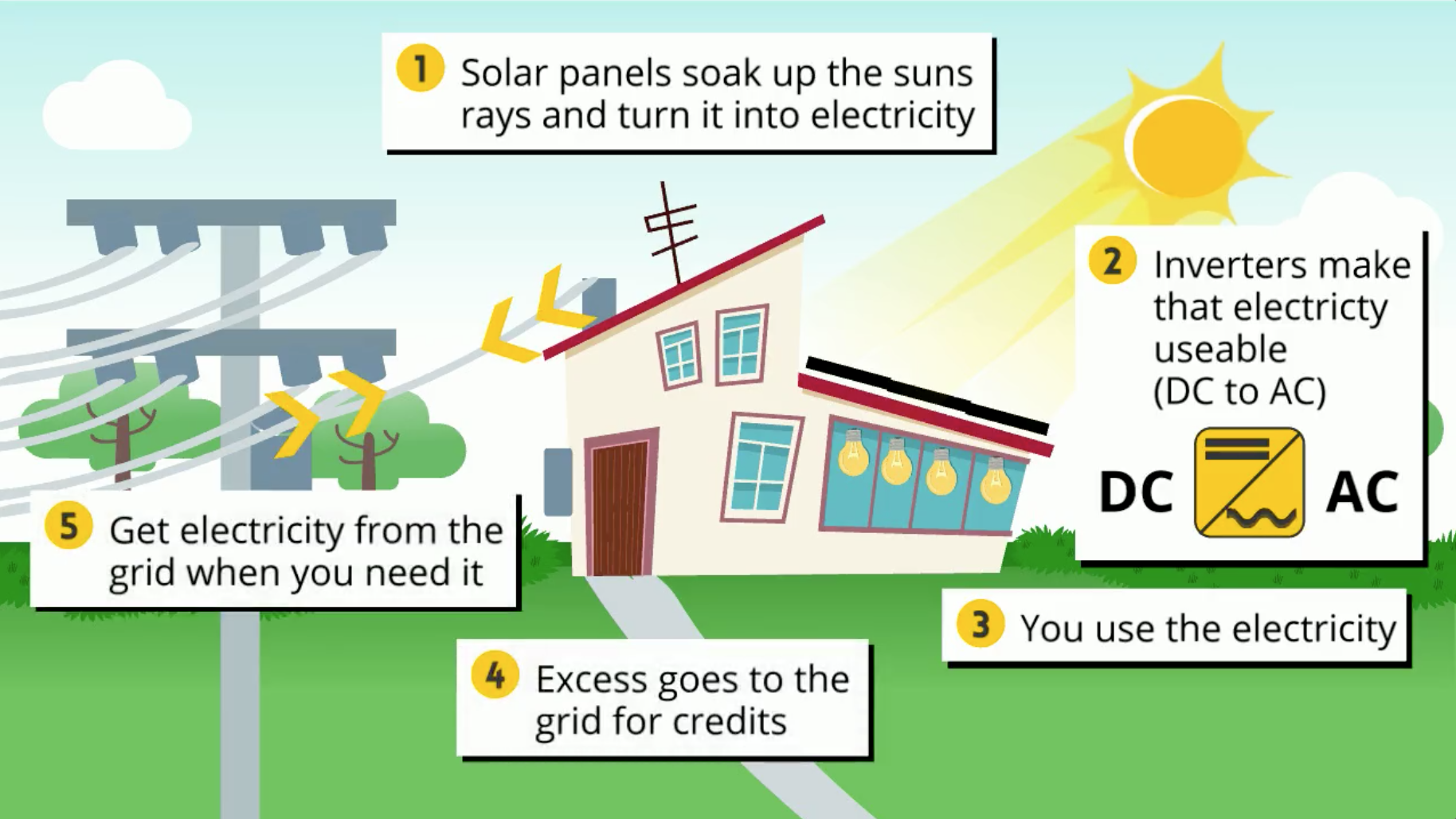
Empowering Homes: Exploring Net Metering Programs for Clean Energy
In the realm of sustainable energy solutions, net metering programs have emerged as a powerful tool, enabling homes to actively contribute to clean energy initiatives. This article delves into the intricacies of net metering, examining its benefits, challenges, and the role it plays in the broader landscape of renewable energy.
Understanding Net Metering Programs
Net metering is a billing arrangement that allows homeowners with solar panels or other renewable energy systems to receive credits on their electricity bills. This occurs when the energy generated by their system exceeds their immediate consumption, with the surplus being fed back into the grid. Essentially, net metering allows homeowners to become both consumers and contributors to the energy grid.
Benefits for Homeowners
One of the primary advantages of net metering programs is the potential for homeowners to save on their energy costs. By generating excess energy during peak sunlight hours, homeowners can offset their electricity bills when their energy consumption exceeds what their renewable energy system produces. This financial incentive encourages the adoption of clean energy technologies.
Promoting Renewable Energy Adoption
Net metering programs play a pivotal role in promoting the widespread adoption of renewable energy technologies. Homeowners investing in solar panels or other renewable systems not only reap financial benefits but also actively contribute to the reduction of carbon footprints. This dual benefit fosters a sense of environmental responsibility and encourages more households to embrace clean energy solutions.
Challenges in Implementation
While net metering programs offer substantial advantages, challenges exist in their implementation. Some utilities and regulatory bodies may face technical and administrative hurdles in integrating the surplus energy from individual homes back into the grid. Striking a balance between encouraging clean energy adoption and managing grid stability requires careful planning and coordination.
The Role of Government Policies
Government policies play a crucial role in shaping the success of net metering programs. Supportive regulations and incentives, such as tax credits and rebates, can significantly boost the adoption of renewable energy technologies. Policymakers must continuously assess and refine these policies to ensure a fair and effective framework for both homeowners and utility providers.
Empowering Communities
Beyond individual households, net metering programs have the potential to empower entire communities. As more homes participate, localities can witness a collective reduction in carbon emissions and a shift towards cleaner, more sustainable energy sources. This sense of community engagement fosters a shared commitment to environmental stewardship.
Technological Advancements and Smart Grids
Technological advancements, including the development of smart grids, are pivotal in optimizing net metering programs. Smart grid technologies enable efficient monitoring and management of energy flow, ensuring that surplus energy seamlessly integrates into the grid. Continuous innovation in these technologies enhances the overall reliability and effectiveness of net metering.
Economic Growth and Job Creation
The ripple effects of widespread net metering adoption extend beyond environmental benefits. The renewable energy sector, driven by increased demand for solar panels and related technologies, stimulates economic growth and job creation. This economic aspect further highlights the multifaceted advantages of net metering programs.
Global Impact on Sustainable Development
Net metering programs contribute to global efforts toward sustainable development. By encouraging decentralized clean energy production, these programs align with international goals to reduce reliance on fossil fuels and mitigate climate change. The collective impact of individual households participating in net metering reverberates on a global scale.
Looking Ahead: The Future of Net Metering
As technology continues to advance and more households join net metering programs, the future looks promising for decentralized, clean energy production. Ongoing research and collaboration between governments, utilities, and homeowners will shape the evolution of net metering, ensuring its continued effectiveness as a key driver of sustainable energy solutions.
Explore more about Net metering programs and their transformative role in clean energy initiatives.

